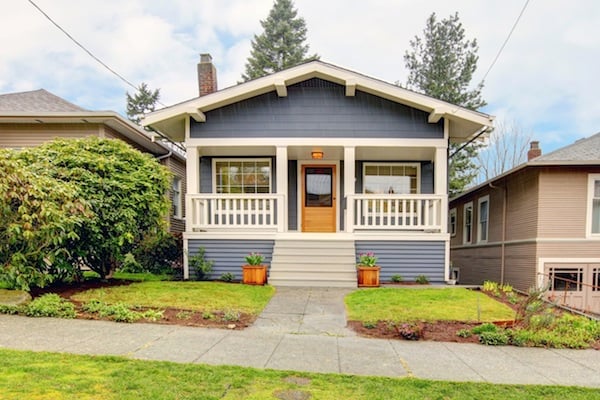The costs involved in moving to a new apartment or house will add up if you don’t plan properly. Do your homework ahead of time to avoid unexpected additional costs and hidden expenses that can pop up, putting a real strain on your budget. Here’s how to calculate your home moving costs to help keep your expenses on track.
Home Moving Costs Depend on the Size of Your Place, Inventory
Home moving costs are calculated differently depending on the company. Some moving companies will determine the cost based on your inventory while others use an hourly rate or other methods. The amount of inventory, of course, depends on the size of your home – whether it’s a studio apartment, a one-bedroom or two-bedroom townhouse, or a five-bedroom house with a garage, toolshed, etc. will matter. The larger the home, the more you’ll pay. Professional movers will typically ask you for the square footage of your home.

How Far You Move Affects Your Costs
Obviously, if you’re moving within the same neighborhood or crosstown, your move will cost less than if you’re moving to a nearby state or cross-country. A local move can typically cost you several hundreds of dollars versus several thousands of dollars for a long-distance move (depending again on the size of the move) and the weight of your items. If you have additional costs or need the movers to pick things up at a storage unit, your costs will add up. Also, if you live in an apartment building with a lot of stairs or a lack of close parking, you may be charged an extra fee.
Large Items, Specialty Items Add to Your Moving Costs
If you have oversized furniture, a pool table, a grandfather clock or piano, or delicate artwork that requires special care, this will increase your costs. It’s important to list these specialty items along with all your inventory when getting a moving quote. The moving company may offer crating, furniture disassembling, protective stretch wrap, felt pads, and mattress bags to protect fragile and specialty items, which will be added to the bill. Be sure to also factor in extra insurance, which might be required for certain items.
Take into Account Boxes & Packing Supplies
Remember to add up the costs of boxes, packaging tape, bubble wrap, and packing peanuts for all the items you need to pack. This stuff is not cheap! You’ll find yourself continually buying more boxes and packing supplies as you go through all your shelves, drawers, etc.
To save some money, decide what you don’t need any longer and donate or give them away so you can reduce costs.
Need Additional Moving Services?
If you want the moving company to pack and unpack your stuff, be sure to keep in mind that this service will cost extra. Costs involve packing supplies and labor (typically based on an hourly rate). This extra cost may be worth the stress and time for you since you don’t have to do the work yourself. Just be clear with the moving company on what services you want so there are no surprises.
Moving insurance will also cost you if you want to protect your items if they’re lost or damaged during a move. The average cost for moving insurance is between 1% and 5% of the value of the insured goods. See if your homeowners or renters policy covers your items when in transit.

Your Move Date Makes a Difference
The day of the week and time of year will impact the cost of your move, too. Weekend moving dates and moves during the summer are more expensive as there are so many people on the move during this time. Be sure to book your moving date well ahead of time. Look at doing the move on a weekday in order to get a lower price.
Not All Moving Companies Are Equal Regarding Costs
Use a moving service that is transparent and will guarantee its price once it has the information it needs to provide a quote. Use an online moving booking service to calculate your costs. Just provide the date of your move, the to and from location for the move, an accurate inventory of each room (including any oversized or specialty items) and what services you would like. Choose a service that shows you the cost to move each item, will not pay the moving company until after your move is completed, and only uses vetted, licensed, insured movers.
Your Expenses Beyond Moving Costs
In addition to your moving expenses, be sure to take into account other important costs involved in a move. These costs include rental deposits, home inspections, appraisal fees, repair fees, utility set-up fees, and pet-care fees, among other expenses.
To get an idea of your home moving costs, go online for a preliminary estimate. You can save your information and update it as you have a better idea of the size of your move and the services you want.








